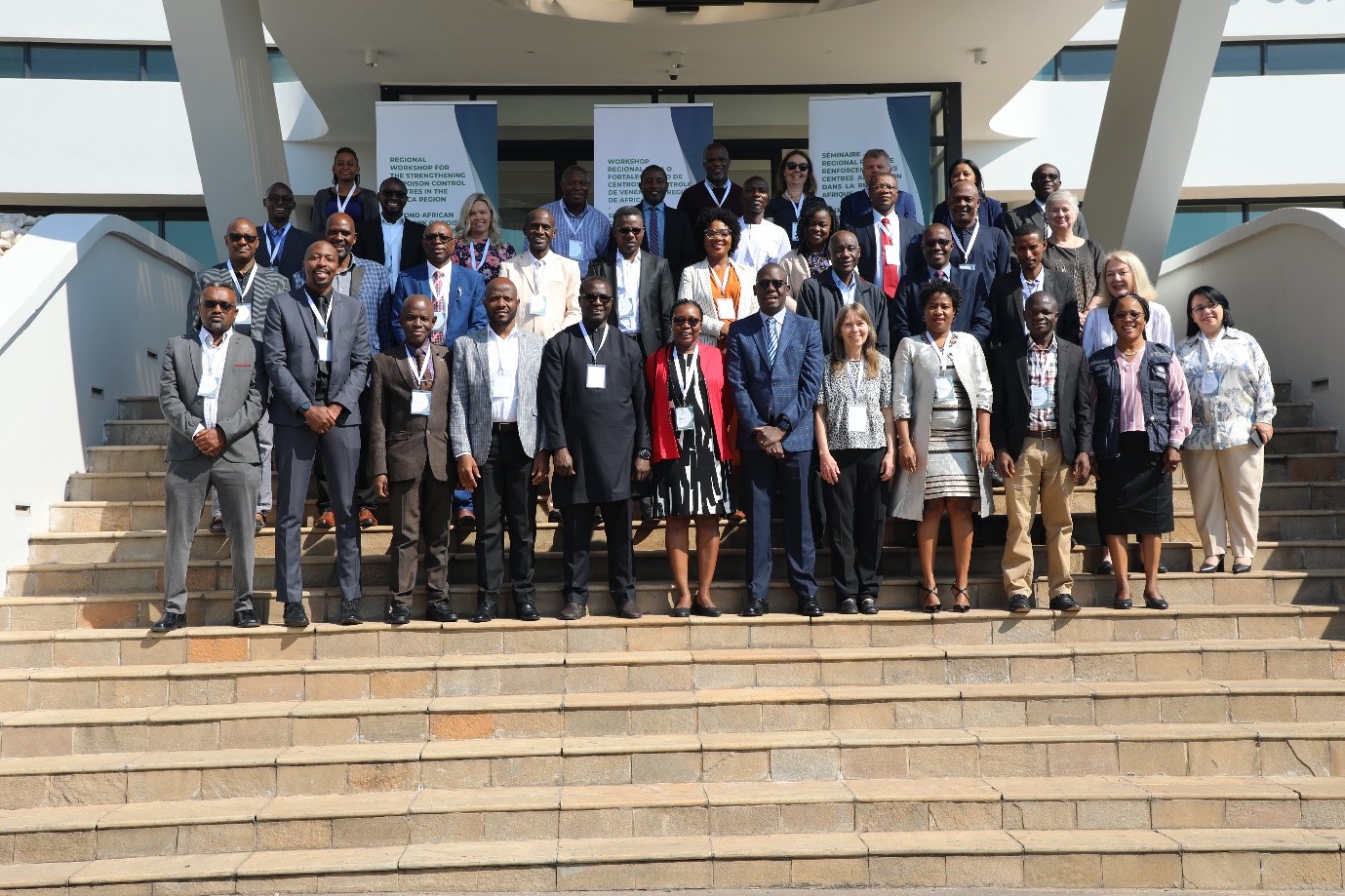
Chemical exposures and poisonings remain a significant public health burden across the Africa continent.
In 2018, the WHO Africa Member States established the African Network of Poison Control Centres (ANPCC) as a regional platform aimed at strengthening establishment of new and existing poison centres, poison prevention and toxicovigilance activities. Poison Information Centres (PICs) play a crucial role in the clinical management and public health response to chemical exposures and are an integral element of improving Chemical Events core capacity under the WHO International Health Regulations (IHR).
In June 2023, UKHSA’s International Heath Regulation Strengthening Project co-hosted with WHO an ANPCC meeting to support improved regional collaboration between poison services that was attended by 17 countries from across the region, including IHR-SP partner countries Nigeria, Ethiopia and Zambia. The event provided an opportunity to share information, experiences and good practice, whilst also increasing awareness of chemical safety, poisonings and preventative action taking place.
The IHR-SP will support the implementation of recommended actions emerging from the event through an agreed workplan to strengthening poisons centres across the region and the partner country poisons centre roadmaps via:
- advocating for PICs through developing policy briefs
- exploring the development of a toxicovigilance network
- strengthening the network via regular steering committee meetings
- PCC capacity building and provision of toxicology information databases and training.
The ANPCC also introduced a poisons centre road mapping methodology and further to this, the IHR-SP has been supporting the Ethiopian and Nigerian Ministries of Health in developing a roadmap to establish the first PICs in these countries, alongside wider stakeholders. Similarly, a roadmap workshop is planned in Zambia in December 2023.
